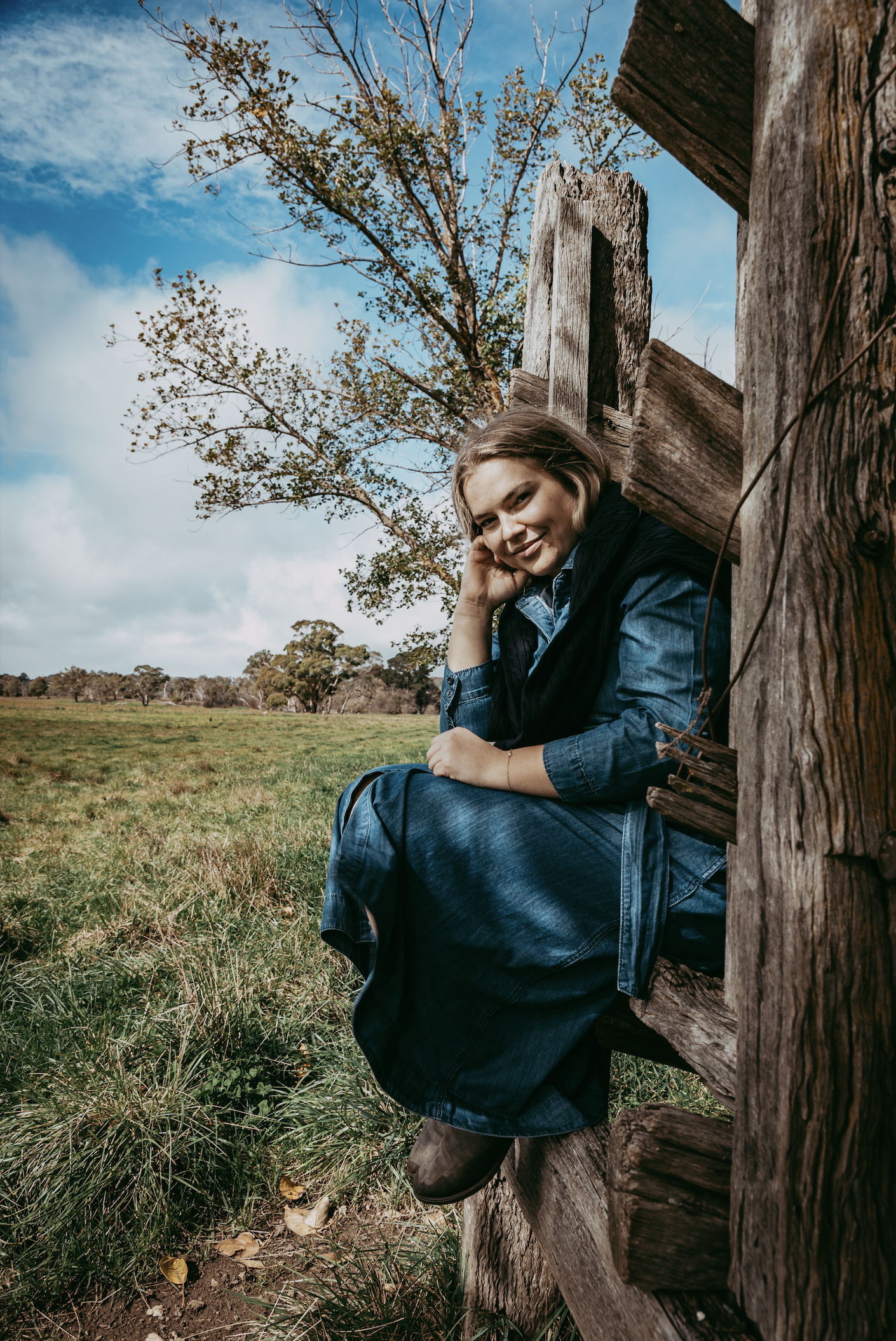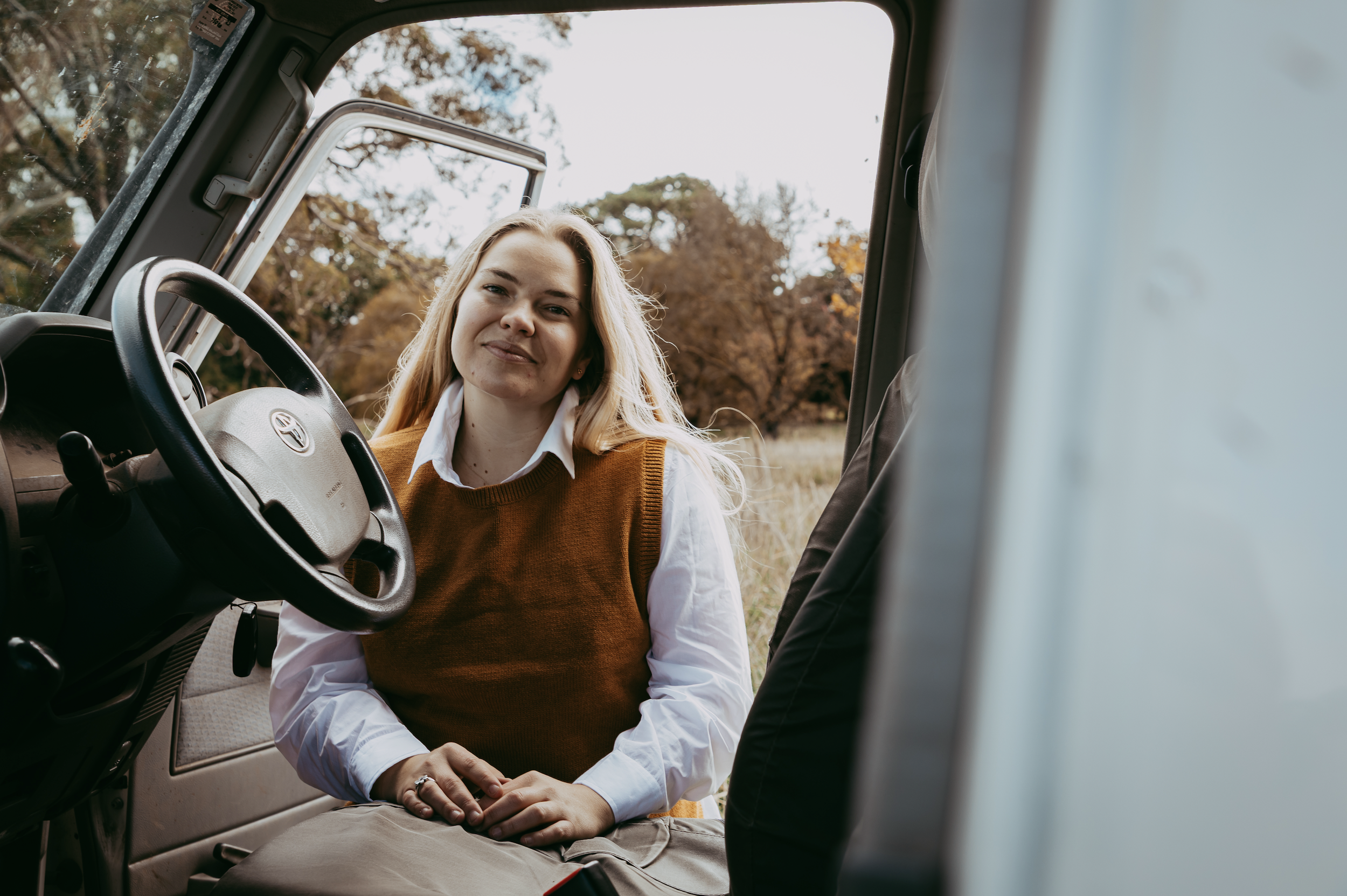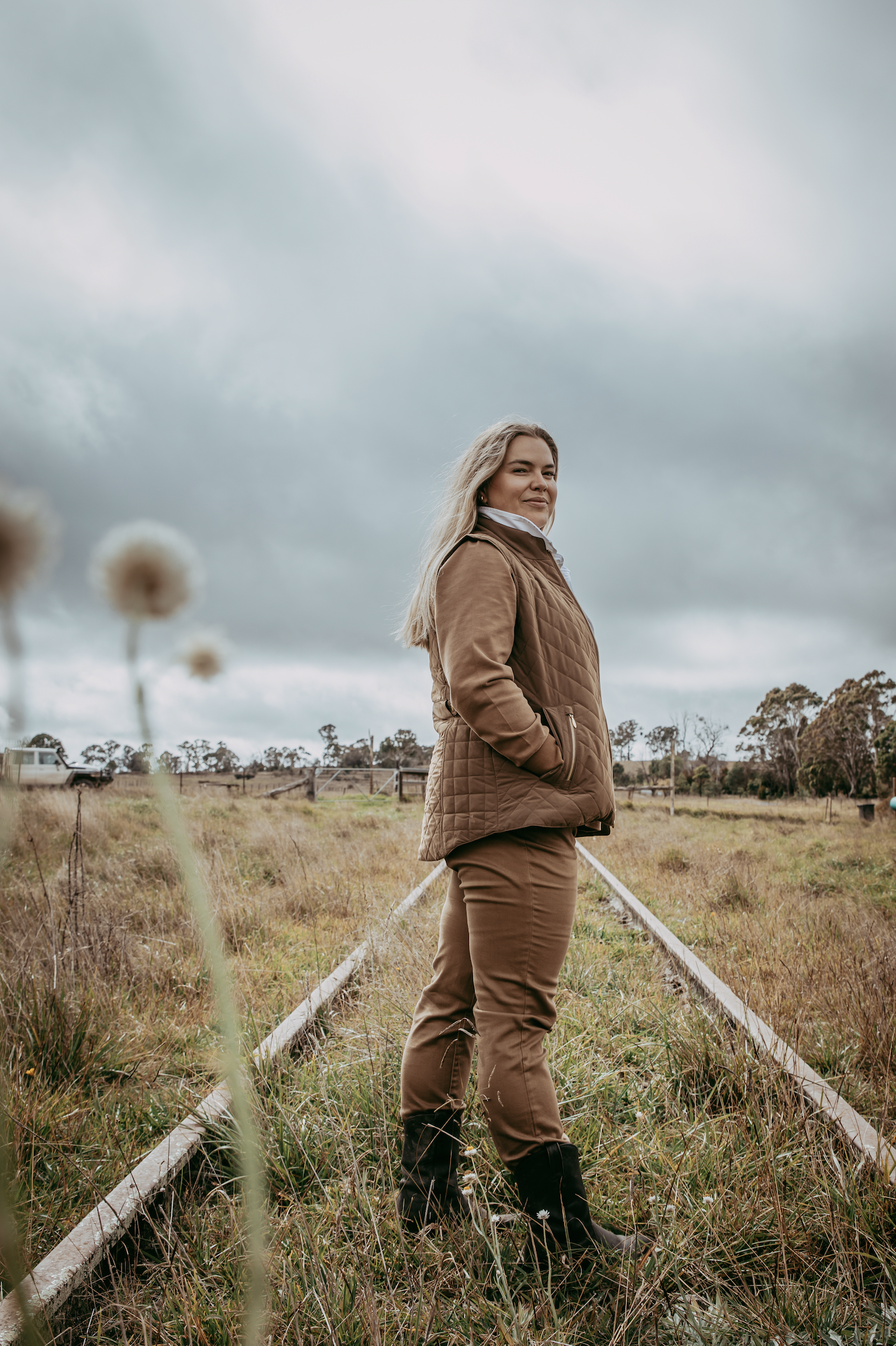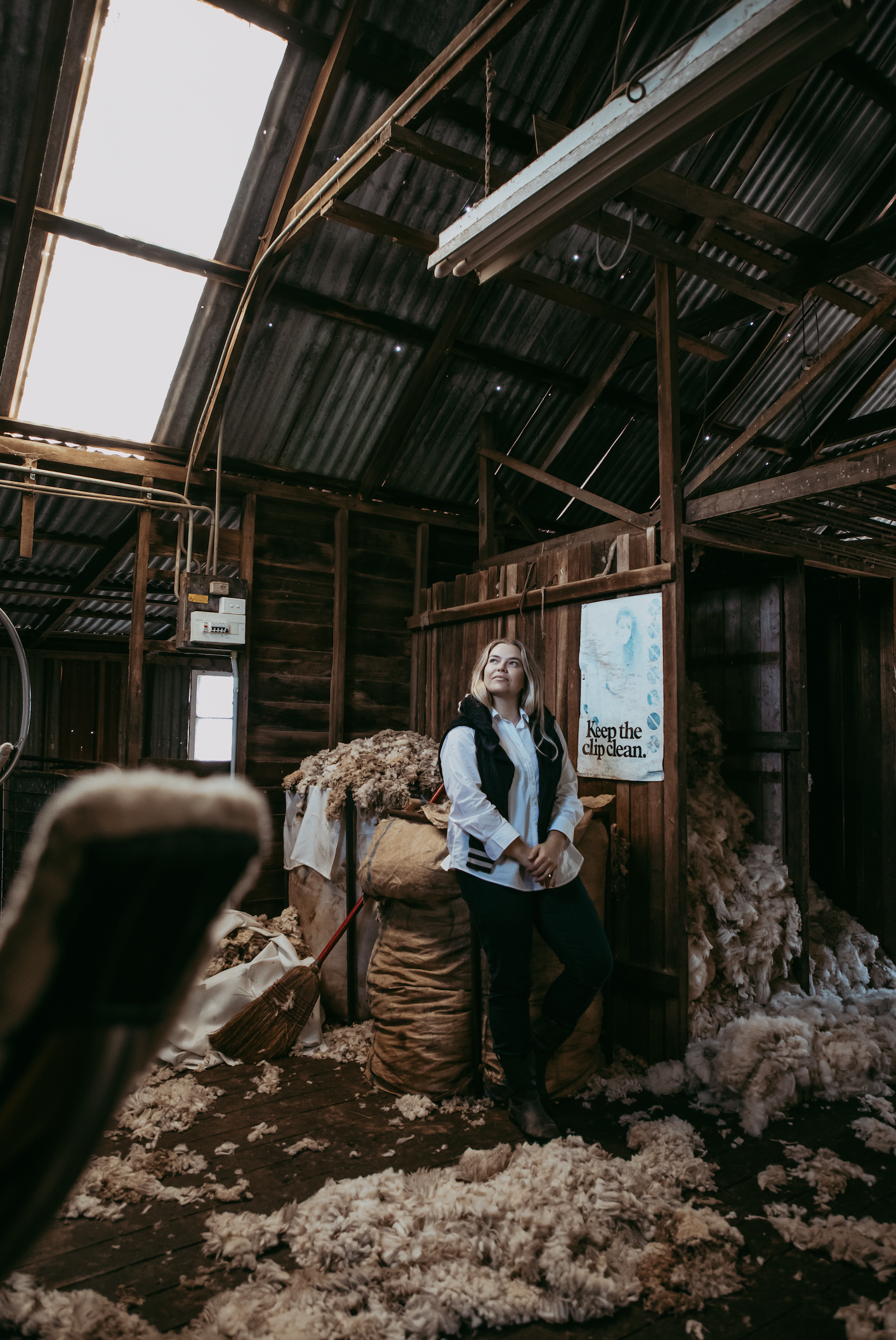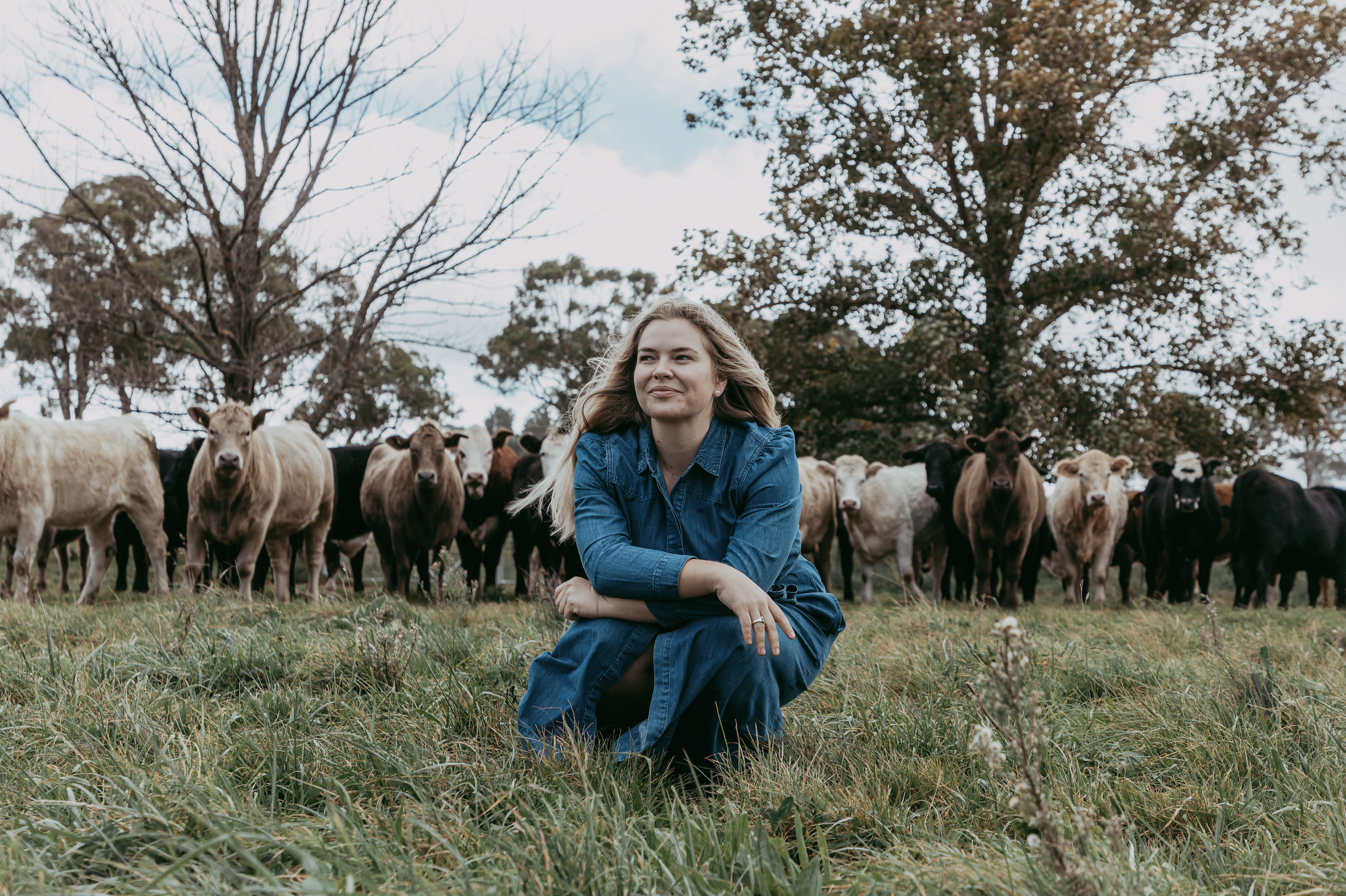Alice’s Pandaemonium
ARTICLE — ALYS MARSHALL | PHOTOGRAPHY — PAULINA EABORN
Pandaemonium may take its name from chaos, but its origins are rooted in something far more deliberate: a refusal to let regional ambition go unseen. In this feature, Alice Armitage — the founder of The Pandaemonium Paper — speaks candidly about the loss that sparked the paper’s creation, the weight of independent publishing, and her mission to make sure country kids know their big ideas don’t have to come with a postcode change. It’s a story about grief, grit, and building something beautiful from the rubble.
Alice Armitage’s first “Letter from the Editor” for The Pandaemonium Paper reads like an ode to possibility lost.
The publication, she explained, was “Born out of a desire to build better representation for the extraordinary people reshaping our futures ... something I wish I had when I was younger ... something I wish Nicholas had before he decided there was no path forward for himself.”
The word Pandaemonium, like so many others in our ever-evolving English language, stems from ancient Greece. ‘Pan’ being the Greek prefix for ‘all’ and “ae- monium” tracing back to the Greek interpretation of “spirits.”
But the Greeks never put the two together. Instead, the word Pandaemonium was coined by 17th-century epic poet John Milton in his tome, Paradise Lost.
And it’s not in a pretty setting. In Milton’s written world, Pandaemonium is the temple built by Satan and his gang of underworld colleagues. Milton stretched and reshaped the Greek meanings to reflect a Latin Christian lens - his Pandaemonium became a place of “all evil spirits.” A place of chaos.
In many ways, The Pandaemonium Paper that is Alice’s brainchild is just that: an idea born out of chaos. The chaos that followed the loss of a bright young man to suicide, back in 2021.
“It just exploded my whole life. Nothing else mattered,” she said.The death of her 18-year-old cousin, Nick Munsie, violently shook the community that surrounded him. It also altered Alice’s understanding of herself.
Before Pandaemonium, Alice had a life chasing the successes most regional girls are told to want. She lived away - in Sydney, Melbourne, Hobart and overseas - and had built a career in tech. She had quotas and numerical evidence of her strength, her ability, her success. But the environment was beginning to eat at her, and she couldn’t shake the disillusionment.
“I was just working with all of these frat boys raising all this money ... to me, it just meant nothing.” She described herself as an entrepreneur at heart - even from a young age. And being hit by a wave of grief didn’t necessarily change that. But it did change the outlet she wanted for it.
“In the tech space, I was just around all these people making money for the sake of making money. There was no real depth to anything that was going on there.”
“There was something about staying in that environment that proved a lot to me, that I was good, that I could do really big work.”
The loss of Nick prompted something to fall into place for her. She clocked that her definition of “big work” was tethered to being in a big city. Then she asked herself why that was.
“I think it was the nature of how that tragedy unfolded. And it was also reflective of my own experience as a young, ambitious country kid who didn’t feel like any of my ambition could be fulfilled unless I left [the country].”
She hesitated, then added:
“I don’t think Nick felt like he could measure up. And I think that’s something so many country kids feel. This isolation, this sense that they don’t know how to achieve anything meaningful, or prove themselves in the environment they live and grow up in.”
She shared the story of a friend - another country kid - who openly speaks about his struggles with mental health.
“He just loved farming. But he was never going to be handed anything. And he didn’t know how he could possibly find happiness, or get the things he wanted. I think that’s what hit me. All the other things that had mattered to me suddenly didn’t. Nothing mattered more than trying to make some other kid feel like they had options. That they could do their own big thing. That there was more on the table for them than they might think.”
And so Pandaemonium became to be. “I love telling stories. And the paper became a way to continue the work I’d started with the book [a bestselling coffee table volume based on the same concept: telling regional stories].”
“But also just ... an avenue to keep showing people that they really can do anything, from wherever they are.”
She told me about one of the early issues of the paper and how it was received. A young woman had written to her: she’d quit her job in the city and moved back to the family farm, unsure of what came next. Feeling like a failure in the eyes of her friends and network. But in the pages of Pandaemonium she had recognised stories like hers. Her quiet disorientation, her shifting identity and the fulfilment of what she was doing - reflected for the first time.
It wasn’t a grand testimonial. There was no internet virality involved, no brand deals to come from it. Just one person reaching out to say: this made me feel seen.
And that, Alice says, is what keeps her going.
When I asked Alice what’s next, she answered me with another question: “If you were given $500,000, what would you do with it?” she posed.
It’s a hypothetical she’s been circling back to a lot lately — and one she puts to other creatives and businesspeople in her orbit.
“I love that question, because it’s not enough to live off forever,” she says. “But it’s enough to change your life, right?” Her initial gut response is “I would not change a single thing.”
“It feels like such a privilege to be able to do the work I do, to showcase the incredible people that I get to showcase.
“Even if it’s just helping someone out while they’re getting started because I have knowledge or giving young journalists the opportunity to be paid for their work where they live.
“Or the number of photographers that we commission that are actually paid for their work. I’m so proud of all of those things.”
But then the reality kicked her brain into gear: Pandaemonium really, really needs that hypothetical $500,000 to keep doing these things. Because while Alice has been at the forefront of a larger shift happening in Australia - in- dependent, regional voice-led media stepping in as big commercial players pull out - it’s not financially sustainable.
“In the current model,” she hastened to add.
“But um ... we’ve got a year to turn the financial model around and then if we can’t, then we can’t keep doing this.” There’s a need for structure now, long- term planning. Security of funding. “I’ve had to go back to the drawing board and ask: what’s worked? What hasn’t? I can’t just keep putting one foot in front of the other anymore.”
“That probably sounds terrifying to some people, but to me it just feels like another challenge. Right? The paper is real. It works. We just need to shake a few things up.”
She smiled, and offered some stats. “I’m gonna throw out some random numbers for you because they’re fun.”
“From the distribution of our last issue, we’ve now had a quarter of a million people read The Paper since we started. We’ve had just shy of 100,000 readers over the last year and we’ve delivered to 571 postcodes across Australia. In the last month alone, over three-quarters of a million people have seen our content on Instagram. And 1.8 million views on TikTok in the past two months.”
“So yeah. There’s clearly a need. A desire for what we’re doing. Now I just need to find a way to make it sustainable. Pretty much if everyone could just subscribe, that’d be great.”
To be the sole creator and publisher of The Pandaemonium Paper is to shoulder collective histories. It means carrying other people’s dreams and losses. It’s laborious, and sometimes painful. Alice admitted she sometimes misses the clean lines of the tech world: pitch, fundraise, build, sell. But now her “big work” is real life, real people - and often ones she only holds a couple of degrees of separation from.
Last year, she felt the hot sting of burnout [“or whatever the hell you want to call it,” she said].
The latest edition of the paper had gone to print featuring the story of Peter Ritter, told through photographs. The Moree-raised, Broome-based helicop- ter musterer was a friend. Then, days before publication, he lost his life doing the thing he loved: flying.
As she remembers that time her hands started to shake a bit.
“When Peter died I realised like there was no reserve tank left in me, right? I couldn’t make any space for myself to work through that process.
“I couldn’t create any space to support the people closest to me that were really struggling through that situation. I couldn’t create much - any - space to put the paper down for any time. There was no reserve in any way that you could interpret that - financially, emotionally, personally.”
“I think that really woke me up to the fact that we were run ragged and right on the edge ...”
At the same time, it only heightened her resolve to keep pushing Pandaemonium up the hill. Because, out here in the regions, “we all have skin in the game.”
“I love people that other people love. I feel the pain they feel because it’s my experience too,” she says.
“And I think that’s helped me understand how important it is to talk about Nick. About how his story links into the true purpose of what we’re trying to achieve through The Pandaemonium Paper.”
Grief gave Alice a kind of clarity - not about what’s wrong with the world, but about what’s right, what’s worth celebrating.
And maybe that’s the real magic of Pandaemonium. Not John Milton’s stuffy old parliament of evil spirits, but a chorus of untidy, unconventional and often unheard voices, telling each other they matter.
Even - especially - amongst the chaos.



